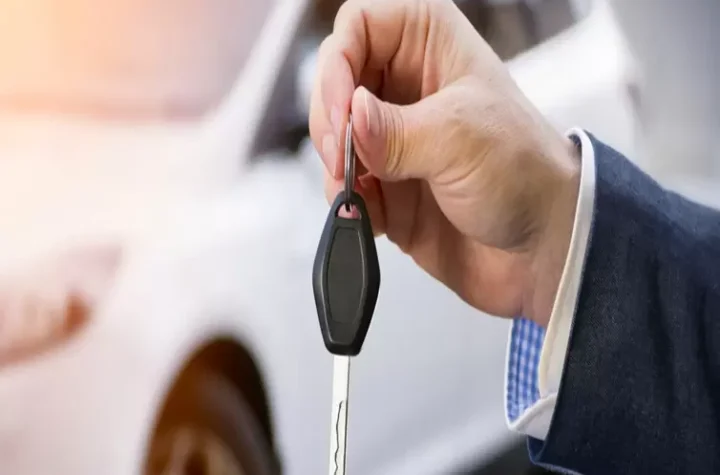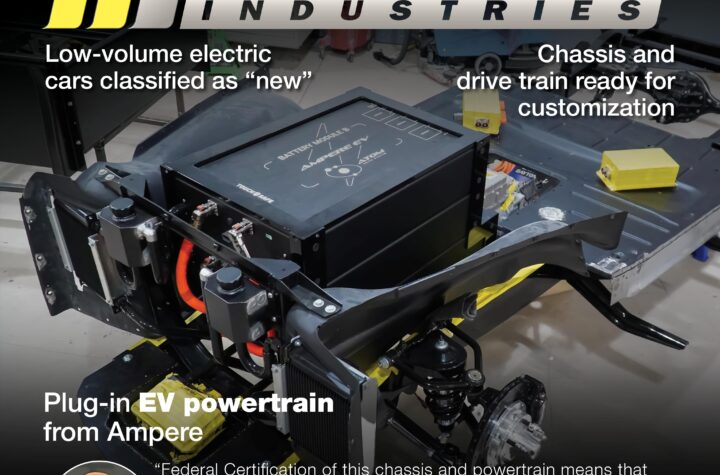
China is likely to make and sell 6.4 million passenger cars, vans, buses and trucks in 2006, spurring the nation to surpass Germany as the world’s third-largest vehicle maker, according to government research.
Vehicle sales in Asia’s second-largest economy may rise by up to 13 percent this year to 5.6 million units, according to a paper presented at a National Development and Reform Commission conference Saturday in Beijing.
The growth forecast follows a recovery in consumer spending in China, with the economy expanding 9.4 percent in the third quarter. General Motors Corp. and DaimlerChrysler AG said they sold more vehicles in China in the first nine months of 2005, even as sales fell in North America and Europe.
“The demand for vehicles will continue as long as the government continues to foster automotive lending and make easy financing available,”said Zhu Baoliang, the chief economist of the government’s State Information Center.
Rising income and easier loans by General Motors Acceptance Corp. and other lenders spurred more people to buy cars. In the last 12 months, Ford Motor Co., Volkswagen AG, Toyota Motor Corp. and DaimlerChrysler all set up ventures in China to lend money to car buyers, in a country where up to 80 percent of vehicles were sold by cash.
Sales of passenger cars may rise by about 12 percent to 3 million units in 2006, if the government holds back on a plan to impose a fuel tax, according to the paper at Saturday’s conference. Sales of luxury sedans and cars with engines larger than 3 liter capacity may drop if the tax is added, according to the paper.
“Demand will probably lean toward cars with smaller engines, since the government’s policy is to impose rules to make it easier and cheaper to own low-emission and small vehicles,” said Zhu of the State Information Center, affiliated with the National Development and Reform Commission.
Detroit-based GM sold 472,468 China-made and imported vehicles in the first nine months of 2005, almost 28 percent more than last year. DaimlerChrysler said it sold more trucks, Jeep sports-utility vehicles and 22 percent more Mercedes-Benz luxury cars in China in the same period.
“The underlying sales growth in the vehicle industry is still strong after months of pent-up demand,” said Ma Liqiang, deputy secretary general of the National Development and Reform Commission. “Rising gasoline prices merely push buyers to choose smaller cars and won’t hurt overall sales.’’
Germany’s production of trucks and buses rose 8 percent in the first 10 months of 2005 to 336,900 units while the output of cars rose 2 percent to 4.46 units in the same period.
China’s 122 vehicle assemblers have not been getting equal shares of the profit from the market’s growth.
The nation’s 10 largest assemblers including Shanghai Automotive Industry Corp. and FAW Group Co. accounted for 84 percent of sales in the first 10 months of the year, Xinhua said. Industry profit fell 6 percent to a combined 72 billion yuan (US$8.7 billion) in 2004.
Chinese households and companies owned 26.94 million cars last year, excluding those owned by the military, of which 14.82 million were registered under personal use.
More people are commuting by cars, with the national daily average rising to 23.3 percent at the end of 2004 from 6 percent in 1984. The percentage of daily commuters who rely on public transport dropped to 26.5 percent from 35 percent in the same 20-year period, the research shows.
China’s car sales grew 15 percent last year, slowing from a 76 percent surge in 2003 and 50 percent growth in 2002, as buyers held out for discounts amid competition.
The stockpile of unsold vehicles rose 11.2 percent in the first nine months of this year to 357,000 units while the number of unsold cars rose 14.4 percent to 143,000 units.
Some carmakers including Volkswagen, the largest overseas carmaker in China, put the brakes on increasing production to reduce their inventory. Wolfsburg, Germany-based Volkswagen last month said it would halt its output expansion in China, scaling back 6 billion euro (US$7.2 billion) investment in the country.
Car prices will fall by less than 4 percent on average this year, according to the National Development and Reform Commission’s research, distributed by the China Economic Information Network.
The price of so-called premium cars like Volkswagen AG’s Audi cars will fall by between 5 percent and 10 percent next year on average.
The Chinese Government will spend 220 million yuan over the next five years to expand the nation’s network of highways to 50,000 kilometers by 2010, from the current 35,000 kilometers.















More Stories
How to Choose the Best Mobile Car Locksmith in Las Vegas
Ensuring Accuracy and Accountability With AI-Powered Time Tracking Software
The Relationship between Defective Airbags and Car Accidents